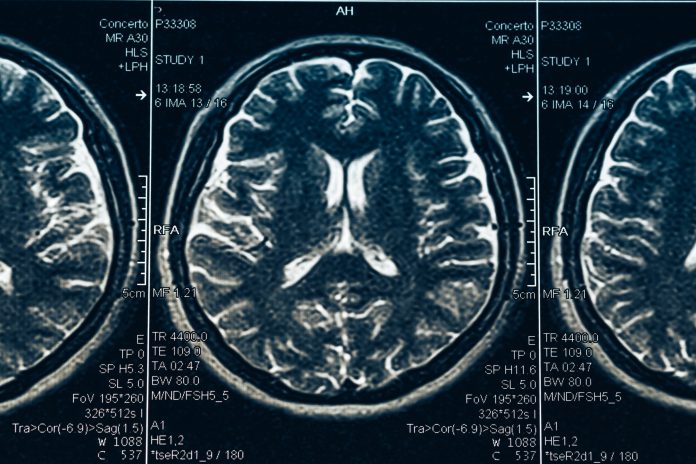Frédéric Destrebecq, Executive Director of the European Brain Council explains the importance of tackling the growing burden of brain disorders in Europe
Over the last decades, neurological and mental conditions have steadily progressed to become the leading causes of disability-adjusted life years (DALYs) and the second leading cause of death worldwide. In Europe alone, an estimated 179 million Europeans live with brain disorders and 1 in 3 are set to live with one within their lifespan. Every year, treating brain conditions accounts for 35% of Europe’s total disease burden with a yearly cost of €798 billion, of which 60% are related to direct costs (both medical and non-medical) [1][2][3][4], which, in spite of the magnitude of these numbers, are still considered to be underestimated and outdated. New epidemiological and economic studies are currently underway to analyse the extent of this burden on European and global society.
The Global Burden of Disease study (WHO, GBD 2016) estimated that neurological disorders were the cause of 276 million DALYs (11,6% of global DALYs for all diseases) and 9 million deaths (16,5% of total global deaths in 2016). Neurological disorders were the leading cause group of global DALYs and second leading cause group of deaths in 2016, while mental disorders accounted for 13% of DALYs[5]. This high burden[5][6] may be surprising as there is a general lack of awareness on the pervasiveness of brain disorders.
However, the growing number of citizens being diagnosed with brain conditions makes clear that the burden of these diseases place on society will not change its course. This burden is continuous due to the epidemiological transition from acute to chronic diseases and the increase in life expectancy, but also because of several socio-economic, environmental and behavioural health determinants.
National brain plans
It is clear that prompt action is needed at all levels. With health being a member state competency, this lack of awareness, prioritisation and disjunction in addressing the burden grows only stronger. Robust strategies at a national level and strong EU-wide coordination efforts are needed to effectively address the burden of diseases, particularly those reaching concerning levels of burden, such as brain disorders—neurological and mental alike. In 2015, the European Brain Council called on the European Union (EU) Member States to work closely with patient representatives, scientific societies and clinicians towards designing and establishing National Brain Plans, which aim to provide a holistic strategy to accelerate brain research and reduce the impact of brain disorders.
Norway and Poland have spearheaded the launch of National Brain Plans, which constitute a key tool for supporting brain research and improving the quality of treatment. By countries (either EU or non-EU) recognising the brain as a priority, the urgency of addressing the burden is demonstrated and can play a major role in convincing the Member States to push the brain to the top of the EU research and health agenda.
Calls for increased funding: Counting down to zero
Horizon Europe is key in playing a positive role in addressing the burden of brain disorders, though the mention of health research—or brain research, specifically—is scarce and the recognition that funding in this field has continuously dropped over the last three Framework Programmes is neglected. In fact, this budget confirms a relative decrease of funding over time and across Framework Programmes, as health was previously allocated 12% under the 7th Framework Programme, 10% under Horizon 2020 and now 8% in the Horizon Europe proposal [7].
Despite the progress in medical science during recent decades and recent breakthroughs which have provided a powerful dual opportunity to relieve the societal burden of neurological and mental disorders and innovate at the frontiers of technology, the inherent complexity of the nervous system has hampered our translational capacity and the vast majority of brain disorders remain without efficient cures. In order to ensure that Horizon Europe becomes a robust instrument for supporting brain research, budgets need to match the challenge. The €7.7 billion provisionally allocated to the “health” cluster under Pillar II is not commensurate with the total budget increase and will clearly be insufficient to effectively address the societal challenges associated with health research.
Brain, Mind & Pain
The reestablishment of the Brain, Mind & Pain MEP Interest Group is a positive sign that the newly elected European Parliament sees the importance of the group. The Group’s first course of action was to release its Book of Evidence for the 2019-2024 mandate, which outlines clear focus areas and proposes recommendations for policy actions, which, if implemented, would significantly improve the quality of life for people with neurological and chronic pain disorders, as well as their families and carers. This Book of Evidence and the work of the BMP Interest Group as a whole contributes to the vision of the brain community on the reorganisation of care systems and services to respond to the growing unmet needs of patients.
The value of treatment
Discussions on healthcare focus too often on the increase in per-person healthcare cost rather than on the benefits of better health through early detection and early intervention. It is, therefore, important to emphasise on the need for more value-based and patient-centred care as well as strategies of early diagnosis and intervention, which proves to be cost-efficient and cost-effective in the long run [8].
References
[1] Balak N, Elmaci I. Cost of disorders of the brain Europe. European Journal of Neurology 14(2):e9(2007) DOI: 10.1111/j.1468-1331.2006.01570.x.
[2] Gustavsson A et al. Cost of disorders of the brain in Europe 2010. European Neuropsychopharmacology (2011) 21, 718–779. doi:10.1016/j.euroneuro.2011.08.008. Available at: http://www.braincouncil.eu/wp-content/uploads/2015/07/Cost-of-Disorders-of-the-Brain-in-Europe-EurNeuro2011.pdf
[3] Olesen J, Gustavsson A, Svensson M, Wittchen HU, Jönsson B. CDBE2010 study group; European Brain Council. Eur J Neurol. 2012 Jan;19(1):155-62. doi: 10.1111/j.1468-1331.2011.03590.x. Available at: https://www.ncbi.nlm.nih.gov/pubmed/22175760
[4] DiLuca M, Olesen J. The cost of brain diseases: a burden or a challenge? Neuron. 2014 Jun 18;82(6):1205-8. doi: 10.1016/j.neuron.2014.05.044. Available at: https://www.sciencedirect.com/science/article/pii/S0896627314004887
[5] Vigo D, Thornicroft G, Atun R. Estimating the true global burden of mental illness. Lancet Psychiatry. 2016 Feb;3(2):171–8. doi: http://dx.doi.org/10.1016/S2215-0366(15)00505-2 PMID: 26851330.
[6] Feigin VL, Abajobir AA, Abate KH, et al. 2017. Global, regional, and national burden of neurological disorders during 1990-2015: a systematic analysis for the Global Burden of Disease Study 2015. The Lancet Neurology 16(11): 877-97.
[7] European Brain Council, Counting down to zero: towards a future with underfunded health research? http://www.braincouncil.eu/wp-content/uploads/2018/07/EBC-Horizon-Europe-Statement-with-signatories.pdf
[8] European Brain Council et al, The Value of Treatment for Brain Disorders in Europe, https://www.braincouncil.eu/wp-content/uploads/2017/06/EBC_white_policy_paper_DEF26072017_Low.pdf
“The EBRA project has received funding from the European Union’s Horizon 2020 research and innovation programme under grant agreement No 825348”











